Table of Contents
ToggleIn the ever-evolving world of biotech, Moleculin Biotech stands out like a unicorn at a horse race. With a mission to tackle some of the toughest challenges in cancer treatment, this innovative company is making waves that even Poseidon would envy. They’re not just dabbling in science; they’re diving deep into the molecular realm, armed with cutting-edge technology and a sprinkle of audacity.
Imagine a team of scientists donning lab coats, wielding pipettes like wands, conjuring up groundbreaking therapies. That’s the spirit of Moleculin Biotech. By harnessing the power of their proprietary drug candidates, they’re on a quest to redefine how we approach cancer care. As they push the boundaries of what’s possible, it’s clear that Moleculin is not just another name in biotech; it’s a beacon of hope for patients and a testament to human ingenuity.
Overview of Moleculin Biotech
Moleculin Biotech focuses on innovative cancer therapies, tackling major challenges faced by patients. The company develops proprietary drug candidates that employ advanced technology to enhance treatment efficacy. Moleculin’s pipeline includes therapies designed to target various solid tumors and blood cancers.
Moleculin leverages its expertise in drug development to create solutions aimed at overcoming resistance to existing cancer treatments. The company’s lead product, Annamycin, targets drug-resistant cancers and gained attention due to its effectiveness in preclinical studies. Another candidate, WP1066, seeks to combat aggressive tumors by activating the immune system.
Moleculin’s commitment to research is evident in its partnerships with leading institutions. Collaborations drive innovation and accelerate the development of novel therapies. The scientific team remains dedicated to pushing the boundaries of what’s possible in cancer care.
The mission of Moleculin Biotech not only centers on advancing treatment options but also emphasizes patient outcomes. By focusing on unmet medical needs, the company aims to improve survival rates and quality of life for cancer patients. This dedication to transforming cancer therapy makes Moleculin Biotech a pivotal player in the biotechnology landscape.
Key Innovations

Moleculin Biotech demonstrates significant advancements in cancer treatment through its innovative drug development strategies and targeted therapy approaches.
Drug Development Process
Moleculin Biotech employs a rigorous drug development process that includes preclinical and clinical trials. The company conducts extensive research to validate drug candidates, ensuring safety and effectiveness. It collaborates with research institutions and utilizes cutting-edge technology to streamline development, aiming for rapid progression from laboratory to clinical settings. Rigorous testing protocols assess both therapeutic potential and optimal dosing strategies, allowing Moleculin to refine its products effectively and address specific cancer types.
Targeted Cancer Therapies
Moleculin Biotech’s targeted cancer therapies focus on personalized treatment options that hone in on unique tumor characteristics. The company utilizes proprietary compounds like Annamycin and WP1066, which specifically attack drug-resistant cancers and activate immune responses, respectively. These therapies aim to minimize side effects while maximizing therapeutic efficacy. By addressing individual patient needs, these innovations represent a shift towards more efficient cancer treatments, potentially improving outcomes for patients facing challenging diagnoses.
Research and Collaborations
Moleculin Biotech engages in strategic collaborations to enhance its research capabilities and accelerate the development of its innovative therapies.
Partnerships with Institutions
Moleculin collaborates with prominent research institutions and universities to leverage their expertise in cancer research. These partnerships foster advancements in drug development, including studies that explore the mechanisms of cancer resistance. Collaborations with institutions such as MD Anderson Cancer Center and the University of Texas provide access to cutting-edge research and clinical resources. These joint efforts aim to validate drug candidates and identify synergistic treatment approaches. By integrating diverse scientific perspectives and facilities, Moleculin strengthens its pipeline and lowers the time-to-market for its therapies.
Current Clinical Trials
Moleculin’s clinical trials focus on evaluating the safety and effectiveness of its drug candidates. Currently, it is conducting Phase 1 and Phase 2 trials for Annamycin, targeting drug-resistant acute myeloid leukemia (AML). These trials include assessing dosage levels and monitoring responses in patients. Additionally, the company is piloting trials for WP1066, assessing its ability to activate immune responses in patients with glioblastoma. Monitoring patient outcomes and side effects provides critical data that informs future development. By prioritizing these clinical trials, Moleculin aims to bring innovative cancer treatments to market, addressing significant unmet needs in oncology.
Market Potential
Moleculin Biotech holds substantial market potential within the oncology sector, driven by its innovative therapies addressing significant treatment gaps. The global cancer therapeutics market is projected to exceed $200 billion by 2026, indicating a robust demand for novel solutions. Moleculin’s focus on drug-resistant cancers positions it favorably in this expanding landscape, particularly as patient populations increasingly seek effective treatments.
Moleculin’s lead candidate, Annamycin, targets drug-resistant acute myeloid leukemia (AML), a condition affecting approximately 20,000 patients annually in the U.S. This market presents significant opportunity, especially since conventional therapies often face resistance. The effectiveness of Annamycin in preclinical studies suggests it could become a key option in combating resistant cancer types.
Furthermore, WP1066, another promising candidate, targets aggressive tumors such as glioblastoma. With an estimated 24,000 new cases diagnosed yearly in the U.S., the potential for WP1066 to enhance immune response creates pathways for growth, particularly as patients seek alternatives to standard treatments.
Moleculin’s strategic collaborations expedite the drug development process, allowing for faster validation and clinical assessments. Partnerships with institutions like MD Anderson Cancer Center amplify the company’s research capabilities and increase its competitive edge. By advancing its pipeline through rigorous clinical trials, primarily Phase 1 and Phase 2 studies, Moleculin aims to address unmet medical needs and solidify its presence in the oncology market.
The combination of an experienced team, cutting-edge technology, and a focused pipeline positions Moleculin Biotech as a significant player poised to influence the future of cancer treatments. This alignment of innovative approaches with market demands enhances the company’s potential for commercial success and improved patient outcomes.
Future Outlook
Moleculin Biotech is set to advance its clinical pipeline significantly, with ongoing trials expected to deliver valuable insights and potential breakthroughs in cancer treatment. Phase 1 and Phase 2 trials for Annamycin and WP1066 will provide critical data on safety and efficacy, shaping the future of these therapies. As results emerge, they may bolster regulatory approvals and attract further investment.
Collaborations with renowned institutions, such as MD Anderson Cancer Center and the University of Texas, are essential for enhancing research capabilities. These partnerships facilitate access to cutting-edge technology and expertise, fostering innovation in drug development. Continued focus on scientific collaboration may expedite the path from laboratory discoveries to clinical application.
The oncology market is poised for substantial growth, with total revenues exceeding $200 billion projected by 2026. Moleculin’s concentration on drug-resistant cancers positions the company strategically within this expanding market. Annamycin’s potential impact on approximately 20,000 annual AML patients in the U.S. demonstrates its significant market opportunity. Furthermore, WP1066 is targeting glioblastoma, a challenging cancer with around 24,000 new diagnoses each year.
Investment in targeted treatment strategies is likely to enhance patient outcomes and quality of life. Moleculin’s dedication to personalized therapies aligns with industry trends that emphasize tailored approaches, which may increase treatment efficacy while reducing adverse effects.
Ongoing advancements in Moleculin’s pipeline, combined with strategic partnerships and a focus on unmet medical needs, indicate a promising future for the company in transforming cancer therapeutics. As it navigates through clinical trials and market dynamics, Moleculin is positioned to emerge as a leader in innovative cancer treatments.
Moleculin Biotech stands at the forefront of innovation in cancer treatment. With a clear focus on drug-resistant cancers and a robust pipeline of proprietary therapies, it’s making significant strides in addressing unmet medical needs. The company’s strategic collaborations with leading research institutions enhance its capabilities and accelerate the development of groundbreaking treatments.
As clinical trials progress, the potential for transformative breakthroughs in oncology becomes increasingly tangible. Moleculin’s commitment to personalized medicine not only aims to improve patient outcomes but also positions the company as a key player in the rapidly evolving biotech landscape. With a promising future ahead, Moleculin Biotech is set to redefine cancer care and offer hope to countless patients.







